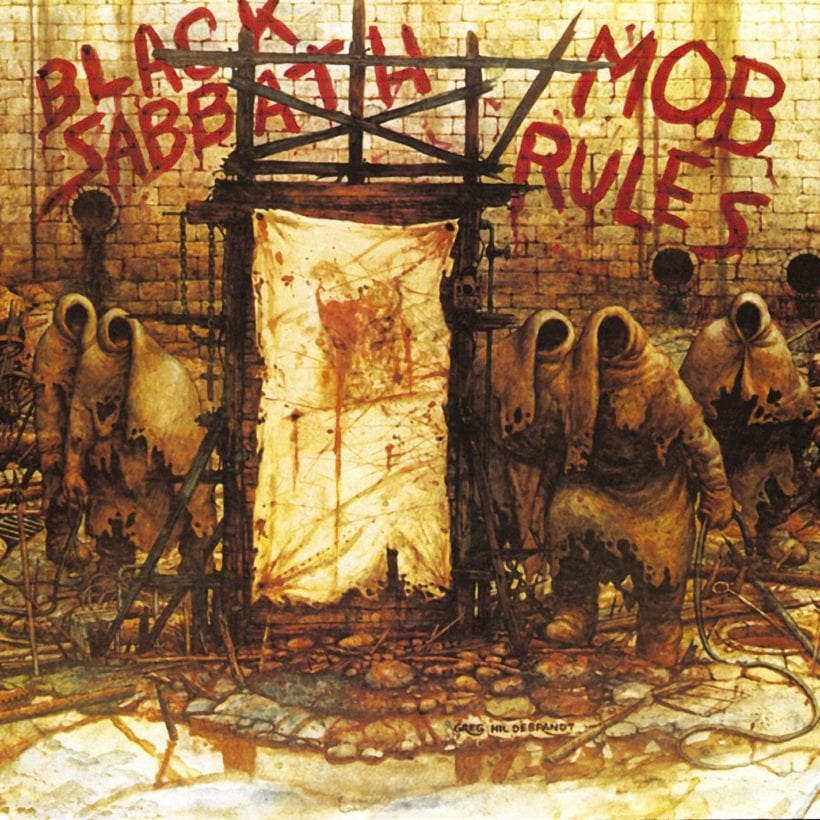
The End is Begun
It’s not often we open a Hall of Fame induction with a quote from a U.S. military general, but it feels like the best way to address the very obvious fact that, by inducting Black Sabbath’s 10th studio album, Mob Rules, we’re blatantly—and for the first time ever—breaking one of our longstanding rules for the Decibel Hall of Fame: All band members must be living at the time of the story. Vocalist Ronnie James Dio tragically succumbed to stomach cancer in 2010, but here we are in 2021 inducting one of his greatest musical achievements, the brilliant Sabbath album that 40 years ago followed hot on the heels of the already inducted Heaven and Hell.
Even though we’re making an exception here, don’t take this as an indicator of a dramatic change in policy. This is, in fact, a very special exception, and the Hall of Fame will continue to maintain the same rigorous requirements it has for nearly two decades. So, with that out of the way, we likely don’t need to make much of a case for inducting Mob Rules. After all, if Heaven and Hell was Hall of Fame-worthy, certainly its successor deserves the same treatment. It would be hard to argue that separately Dio and Sabbath made many albums equal to what they made together. Without succumbing to obvious RJD-isms, there was a magic in this combining of forces. Dio brought a melodic versatility to Sabbath, and Sabbath gifted Dio a heaviness he could attain nowhere else. Yes, it was a volatile combination that imploded and reconvened on multiple occasions, but that creative tension always made incredible music.
And lest we give the impression that we view Mob Rules as simply Heaven and Hell Part 2, please allow us to disabuse you of that notion. Yes, it offers many of the same musical thrills, but it is indeed a unique beast, due to the addition of then 23-year-old drummer Vinny Appice, who brought an energy and vitality to Sabbath that a flagging Bill Ward—grappling with addiction issues—was incapable of at that juncture in his life. Though it was Ward’s choice to exit Sabbath in the middle of the U.S. tour supporting Heaven and Hell, it turned out to be a blessing, as the young Appice not only ably replaced Ward, but injected some well-timed youthful enthusiasm. The album this newly solidified quartet (two original members and two Americans) would make together in the spring of 1981 would both confirm the strength of a Dio-led Sabbath and eventually lead to its dissolution, the first of three such break-ups.
Before delving into the making of Mob Rules, we need to acknowledge that this induction wouldn’t have been possible without the contribution of an extensive Ronnie James Dio interview conducted by journalist Bryan Reesman in 2008. Portions of this interview were used in the liner notes he wrote for the Mob Rules remaster in that same year, as well as in a Heaven and Hell (the band) cover story in Goldmine magazine from May 2008. Other parts of his interview have not been previously published. We’re grateful to Bryan and Goldmine for their generosity.
Need more Black Sabbath? To read the entire seven-page story, featuring interviews with all members who performed on Mob Rules, purchase the print issue from our store, or digitally via our app for iPhone/iPad or Android.




